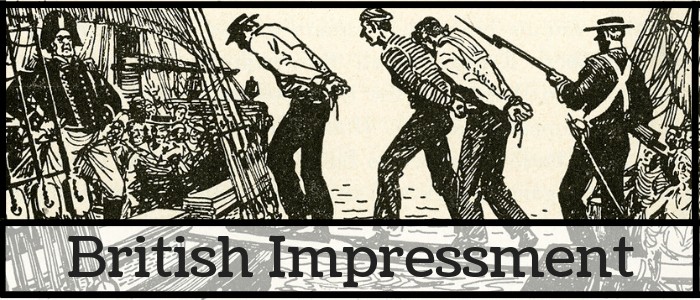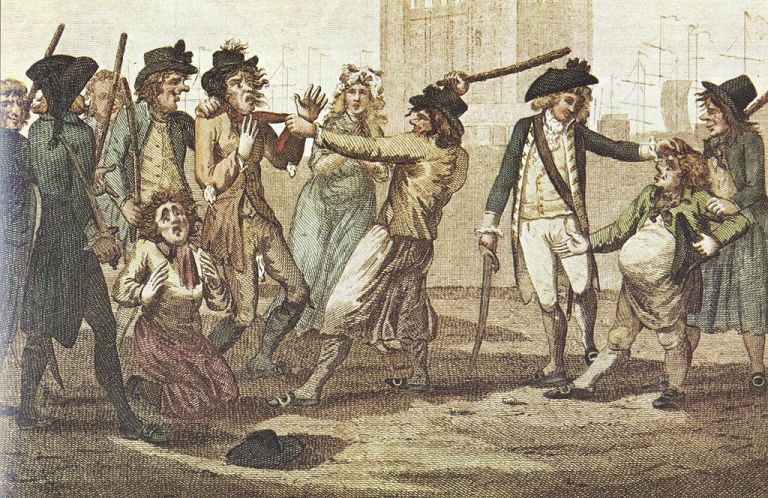One of the primary causes of the War of 1812 was British Impressment.

Great Britain had practiced impressment since the reign of Queen Elizabeth and used it to aid their search for qualified seamen. Impressment was done on the mainland and at sea.
While Great Britain gets most of the blame for this practice, all European powers participated in it. The Continental Navy participated in it during the Revolutionary War.
What Was British Impressment?
British Impressment was the "pressing" or forcing of individuals into the Royal Navy. Since Britain had a hard time maintaining enough manpower to meet their needs, they used impressment to fill in the holes.
Pressing took place at home in England and at sea when they boarded foreign merchant ships.
In England, press gangs would search taverns and look for deserters, the poor, or anyone who fit the physical description for seamen.
While that was irritating, what caused more conflict was when the British impressed American sailors into the Royal Navy by capturing merchant ships and then forcing parts of the crew to join.
Just imagine the horror that families felt when an American ship returned to the harbor and learned that their son or husband had been impressed by one of these press gangs aboard a British warship.

Napoleonic Wars
Britain fought the war against Napoleon on the high seas, enlarging its Royal Navy from 135 ships in 1793 to 584 in 1812 and expanding personnel from 36,000 seamen in 1793 to 114,000 in 1812.
In the Spring of 1814, Napoleon surrendered, the British restored the Bourbon kings to the throne, and France was now an ally of Great Britain. The French Navy and the French Merchant Marine switched sides, and the naval war in Europe was over.
Britain could now sharply reduce its Royal Navy. It had no need to impress sailors and never again used that technique against Americans, although it did not officially renounce the practice.
War of 1812
The practice of impressment offended the senses of the United States. That a free man's rights could be violated when not engaging in an act of war was egregious. However, impressment was not a new thing and had been occurring since before the Revolutionary War.
During the 1750s, the Royal Navy often performed a sweep through taverns on the coast to round up able-bodied seamen.
Presidents John Adams, Thomas Jefferson, and James Madison had to deal with the issue of impressment from France and England throughout their presidency, and they lacked the naval power to threaten the offending nation properly.
The Chesapeake-Leopard affair occurred when the Royal Navy fired on and then pressed 4 sailors into their ranks. Hanging one of them on a charge of desertion. After this occurred, the War Hawks began to push President James Madison toward war to stop British impressment and defend their nation's honor.
The war did not stop impressment. The end of the Napoleonic Wars did.
